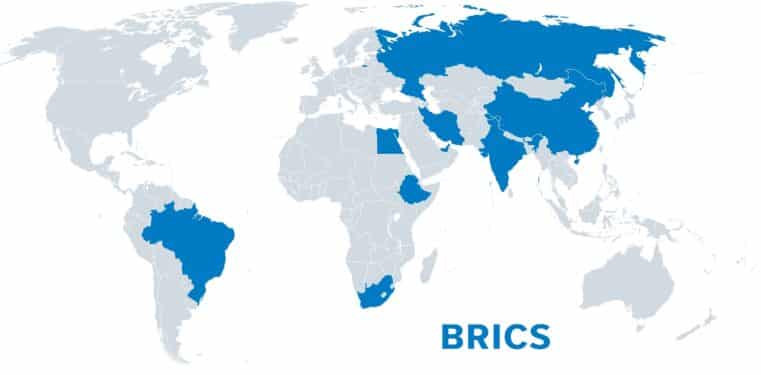
The Senate’s Spending Bonanza: Who Profits from Trump’s “Big, Beautiful Bill”
A Midnight Deal, a Mountain of Debt
After weeks of partisan theater and closed-door haggling, Republican Senate leaders finalized a 940-page monstrosity just before midnight Friday—a bill that aims to codify a raft of Trump campaign pledges, expand corporate giveaways, and casually tack another $5 trillion onto America’s already unsustainable debt load. Senate Majority Leader John Thune is hustling to jam it through with a procedural vote as early as Saturday afternoon, all while privately admitting he doesn’t know if he has the votes.
It’s a fitting spectacle: a razor-thin majority racing to pass a bill so bloated and so riddled with carve-outs that even seasoned fiscal hawks are balking. But the pressure is on to ram this behemoth onto Trump’s desk by July 4—an Independence Day gift to donors, lobbyists, and political allies.
Tax Cuts That Mostly Benefit the Wealthy
At the heart of the bill are extensions to Trump’s 2017 tax cuts: lower income-tax brackets, higher standard deductions, a juiced child tax credit, and shiny new breaks for overtime, tip income, and auto loans. But don’t be fooled by the populist window dressing. The Tax Policy Center has already shown these cuts tilt heavily toward upper-income households.
While Republicans trumpet relief for “everyday Americans,” the bulk of the windfall goes to those earning well into six figures. And many of the new provisions—like the bonus deduction for seniors—are set to expire in 2028, ensuring this largesse is as temporary as it is inequitable.
The “Revenge Tax” Scrapped to Please Wall Street
Perhaps the clearest proof of who really pulls the strings: the quiet euthanizing of the so-called “revenge tax,” Section 899. This provision targeted foreign nations imposing discriminatory taxes on U.S. firms—a retaliation mechanism designed to defend American interests.
But when Wall Street began to panic about compliance burdens and potential capital flight, Treasury Secretary Scott Bessent intervened, striking a “joint understanding” among G7 nations to neuter the measure. Wall Street breathed a sigh of relief, and the Senate dutifully removed the tax from the final bill.
SALT Cap Games for High-Income Earners
The bill also tweaks the notorious SALT deduction cap. Under Trump’s 2017 tax law, the deduction was capped at $10,000—a thorn in the side of wealthy taxpayers in high-tax blue states. Senate Republicans, eager to buy a few more votes, agreed to jack the cap up to $40,000 starting in 2025.
Yet in a twist of galling hypocrisy, they left intact a loophole that allows pass-through businesses to avoid the cap entirely—a handout tailor-made for the affluent. As Chye-Ching Huang of NYU’s Tax Law Center aptly noted, this scheme preserves deductions for the wealthy while ignoring the most egregious avoidance tactics.
Medicaid Cuts and Work Requirements
While tax breaks and corporate carve-outs abound, Medicaid recipients were not so lucky. Despite the Senate parliamentarian nixing some of the harshest provisions, the bill still includes work requirements: 80 hours a month or risk losing coverage.
The Congressional Budget Office estimates this could strip millions of low-income and disabled Americans of insurance—collateral damage in the GOP’s war on welfare spending.
Targeted Carve-Outs and Special Deals
No megabill would be complete without absurd niche giveaways to grease the wheels of passage.
- Alaska senators secured an increase in the whale-hunting deduction from $10,000 to $50,000—a textbook example of Washington’s transactional culture.
- Car buyers were dealt a blow as the bill accelerates the end of the $7,500 electric vehicle tax credit, effective September 30—appeasing fossil fuel interests while kneecapping renewables.
This is what bipartisan compromise looks like in practice: a grab bag of favors for the connected and the powerful, while ordinary Americans pick up the tab.
The Bottom Line: You’re the Backstop
No matter which party is in charge, the blueprint stays the same: massive spending, temporary benefits for the masses, permanent benefits for the elites, and endless debt for the taxpayer. This bill isn’t an anomaly. It’s a perfect illustration of why I warn you, time and again, not to leave your financial security in the hands of bureaucrats and politicians.
If you’re determined to inoculate yourself against the ruinous consequences of this fiscal madness, it’s time to take decisive action. I strongly recommend you start by reading Bill Brocius’ End of Banking As You Know It, which unpacks how government largesse, central banks, and Wall Street collude to loot your savings.
If you haven’t already, download Bill’s practical guide, 7 Steps to Protect Your Account from Bank Failure, before the next crisis hits. Because while Congress feasts, you’re expected to foot the bill—and it’s only getting bigger.
Get the Resources to Protect Your Wealth Now:
👉 Download the 7 Steps Guide
Explore Further:
- Order End of Banking As You Know It
- Subscribe to Bill’s Inner Circle Newsletter for Exclusive Insights ($19.95/month)
Act now. Because no one in Washington will protect your money but you.











